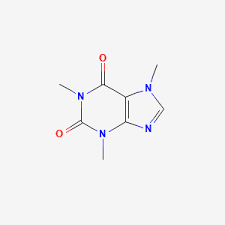The Effects of Caffeine on the Body
Caffeine is one of the most commonly consumed stimulants in the world. Found in coffee, tea, energy drinks, and various other products, caffeine has both positive and negative effects on the body.
Positive Effects
One of the main reasons people consume caffeine is for its stimulating effects. Caffeine can help improve focus, alertness, and concentration. It can also enhance physical performance by increasing adrenaline levels and releasing fatty acids from fat tissues to be used as fuel.
Additionally, caffeine is known to boost mood and reduce the risk of certain diseases such as Alzheimer’s and Parkinson’s.
Negative Effects
While moderate caffeine consumption is generally safe for most people, excessive intake can lead to negative effects. Common side effects of consuming too much caffeine include insomnia, nervousness, restlessness, stomach upset, increased heart rate, and muscle tremors.
Long-term excessive caffeine consumption can also lead to dependency and withdrawal symptoms when trying to cut back or quit. It’s important to be mindful of your caffeine intake and listen to your body’s signals.
Conclusion
Caffeine can have both positive and negative effects on the body depending on the amount consumed and individual tolerance levels. It’s essential to consume caffeine in moderation and be aware of its potential impacts on your health.
If you experience adverse reactions to caffeine or have concerns about your consumption levels, consider consulting with a healthcare professional for personalized guidance.
Understanding Caffeine: Effects, Sources, Benefits, and Risks
- What caffeine does to the body?
- What are examples of caffeine?
- Is caffeine good or bad?
- What are 5 negative effects of caffeine?
What caffeine does to the body?
Caffeine, a widely consumed stimulant found in coffee, tea, and energy drinks, has various effects on the body. When ingested, caffeine quickly enters the bloodstream and blocks the action of adenosine, a neurotransmitter that promotes relaxation and sleepiness. This blocking effect leads to increased alertness and improved focus as caffeine stimulates the central nervous system. Additionally, caffeine can boost metabolism, increase adrenaline levels, and release fatty acids from fat tissues to be used as energy. However, excessive caffeine consumption can lead to negative effects such as insomnia, jitteriness, increased heart rate, and dependency. It’s important to be mindful of your caffeine intake and its potential impact on your overall well-being.
What are examples of caffeine?
Caffeine is a naturally occurring stimulant found in various sources that are commonly consumed worldwide. Some examples of sources that contain caffeine include coffee, tea, energy drinks, soft drinks, chocolate, and certain medications like pain relievers and weight loss supplements. Each of these sources provides different amounts of caffeine, with coffee being one of the most popular and potent sources. It’s important to be mindful of your caffeine intake and consider the potential effects it may have on your body based on the source and quantity consumed.
Is caffeine good or bad?
The question of whether caffeine is good or bad is a common one with a nuanced answer. Caffeine, when consumed in moderation, can offer various benefits such as increased alertness, improved focus, and enhanced physical performance. It can also have positive effects on mood and may reduce the risk of certain diseases. However, excessive consumption of caffeine can lead to negative effects like insomnia, restlessness, and increased heart rate. It’s important for individuals to be mindful of their caffeine intake and understand their own tolerance levels to determine whether caffeine has a positive or negative impact on their overall well-being.
What are 5 negative effects of caffeine?
Consuming excessive amounts of caffeine can lead to several negative effects on the body. Five common adverse reactions to high caffeine intake include insomnia, nervousness, restlessness, gastrointestinal issues such as stomach upset, increased heart rate, and muscle tremors. It’s important to be mindful of your caffeine consumption and recognize when these negative effects may be impacting your well-being. Moderation is key when it comes to enjoying the stimulating effects of caffeine without experiencing these undesirable consequences.


